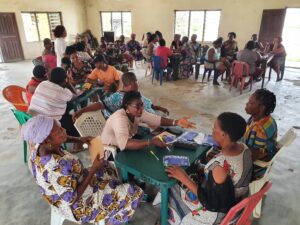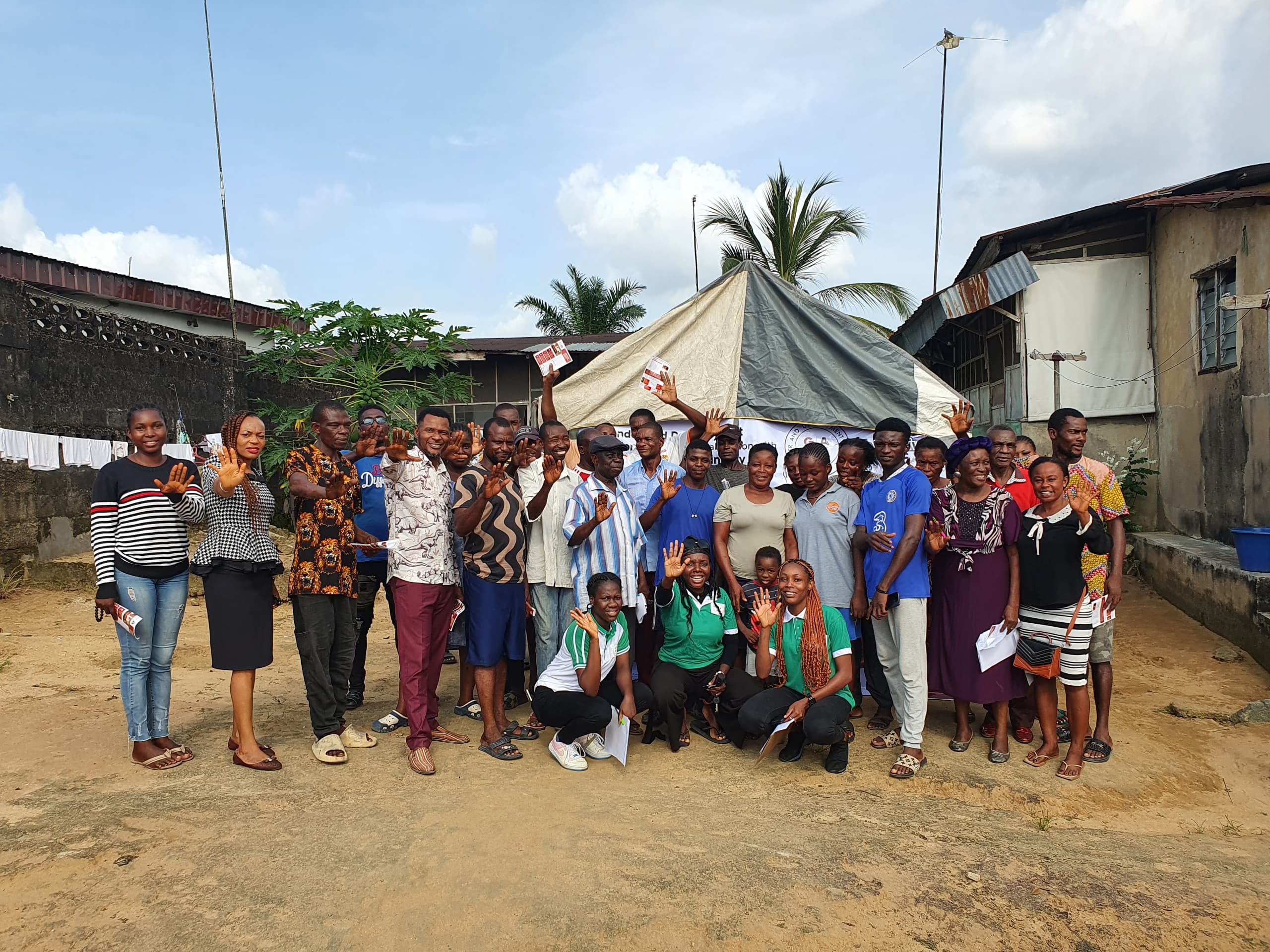One morning in early July, Anthonia Effiong received upsetting news: a woman had been violently attacked by her ex-husband after he invited her to nurse their baby. Upon hearing this, Effiong swung into action, deploying members of her committee to investigate the assault promptly.
Effiong is a member of the Community Crisis Management Team (CCMT), a grassroots taskforce working to combat gender-based violence (GBV) in rural communities. The CCMT, which was initiated by the non-profit Gender and Development Action, took off in November 2023, as part of a global campaign to stamp out violence against women and girls. Its mission is to create safe spaces for women and girls in most rural communities. “The CCMT is key on prevention and not on dealing with aftermaths of gender-based violence,” said Nnenna Ugbor, the initiative’s project lead.
Without relying on formal structures, the CCMT takes a community-centred approach. It empowers locals through quarterly trainings on means to identify and respond to GBV cases expertly. “Due to the grassroots involvement, community members are personally involved in leading solutions tailored to their unique needs and context of their communities,” Ugbor added. Additionally, this instills a sense of accountability in the villagers while making the outfit more sustainable.
The trainings, which are delivered in Nigerian Pidgin and local dialects, mostly include workshops and hands-on demonstrations on handling GBV crises. Local teams also receive leadership trainings to reinforce the sense of responsibility in identifying root causes of gender violence in their various communities. According to Ugbor, these trainings are hosted by GADA, which also provides education and communication materials as well as robust monitoring and evaluation tools to the local groups.
By working to curb GBV in rural communities, the CCMT aims to foster community development and inspire a sense of accountability among villagers. Yet achieving this objectives depends on a supportive environment. To shore up local support, the initiative collaborates multiple community leaders and civil society organisations, including government outfits. Currently, in Cross River State where it first kicked off, the CCMT operates in 16 communities across 12 local government areas.

Where it rallies efforts to stymie gender-based violence (GBV), the CCMT provides support to GBV survivors through referral pathways. Such services may include anything from medical support to legal assistance. After Effiong’s committee investigated the spousal violence case, they ensured the assailant’s arrest and facilitated medical treatment for the victim. Days later, when the CCMT found that the assailant had been released on bail, it filed a petition against the Cross River State commissioner of police, demanding the culprit’s re-arrest. The case was consequently transferred to the state’s investigation department, and the culprit is now facing prosecution.
Home to some of Nigeria’s aesthetic scenery, Cross River is notorious for its repressive gender practices. In the Becheve people, for example, young women are bequeathed to older men as debt repayment in what is known as money marriage. At least 586 cases of GBV were reported in the state in 2023. Similarly, a study published last year revealed that the majority of women in the state had experienced some form of physical violence.
The alarming spate of GBV cases made Cross River an ideal location to launch the CCMT initiative, Ugbor explained. The success of the project would inspire similar models in neighbouring states. “By focusing on Cross River State, the initiative aims to create a significant impact through targeted interventions, leveraging existing support and addressing the specific challenges faced by women in the state.”
Alongside periodic trainings and workshops, CCMT members are made to put their leadership skills to the test through organising local campaigns and events in their respective communities. This further build respect for CCMT members in their respective communities.
Limited resources and resistance from some host communities sometimes pose a significant barrier to the initiative’s advocacy. Providing full coverage across all communities it serve comes at a high cost, creating gaps in several communities. Furthermore, some members have become inactive, placing a greater burden on the remaining active members, who struggle with burnout from dealing with the growing number of cases. Ugbor admitted that the inactive members have limited the initiative’s progress in several communities.
Notwithstanding, the CCMT remains poised on its drive to fostering inclusive, violence-free societies in rural communities. Through sustained efforts and community engagement, the team continues to push forward, determined to bring lasting change.
Stella, a member of the Community Crisis Management Team (CCMT), swiftly acted when a woman was assaulted by her ex-husband, highlighting the CCMT’s mission: preventing and addressing gender-based violence (GBV) in rural communities. Initiated in November 2023 by nonprofit Gender and Development Action (GADA), the CCMT employs a grassroots approach, training locals in Nigerian Pidgin and local dialects to lead GBV solutions tailored to their communities. These efforts foster community development and accountability, supported by collaboration with local leaders and civil organizations.
Operating in Cross River State, notorious for its repressive gender practices, the CCMT provides crucial support to GBV survivors through medical and legal referrals. Cases like Stella’s show the CCMT’s tenacity and impact, leading to the assailant’s prosecution. Despite challenges like limited resources and community resistance, the CCMT is committed to building inclusive, violence-free societies, driven by continuous community engagement and targeted interventions.






